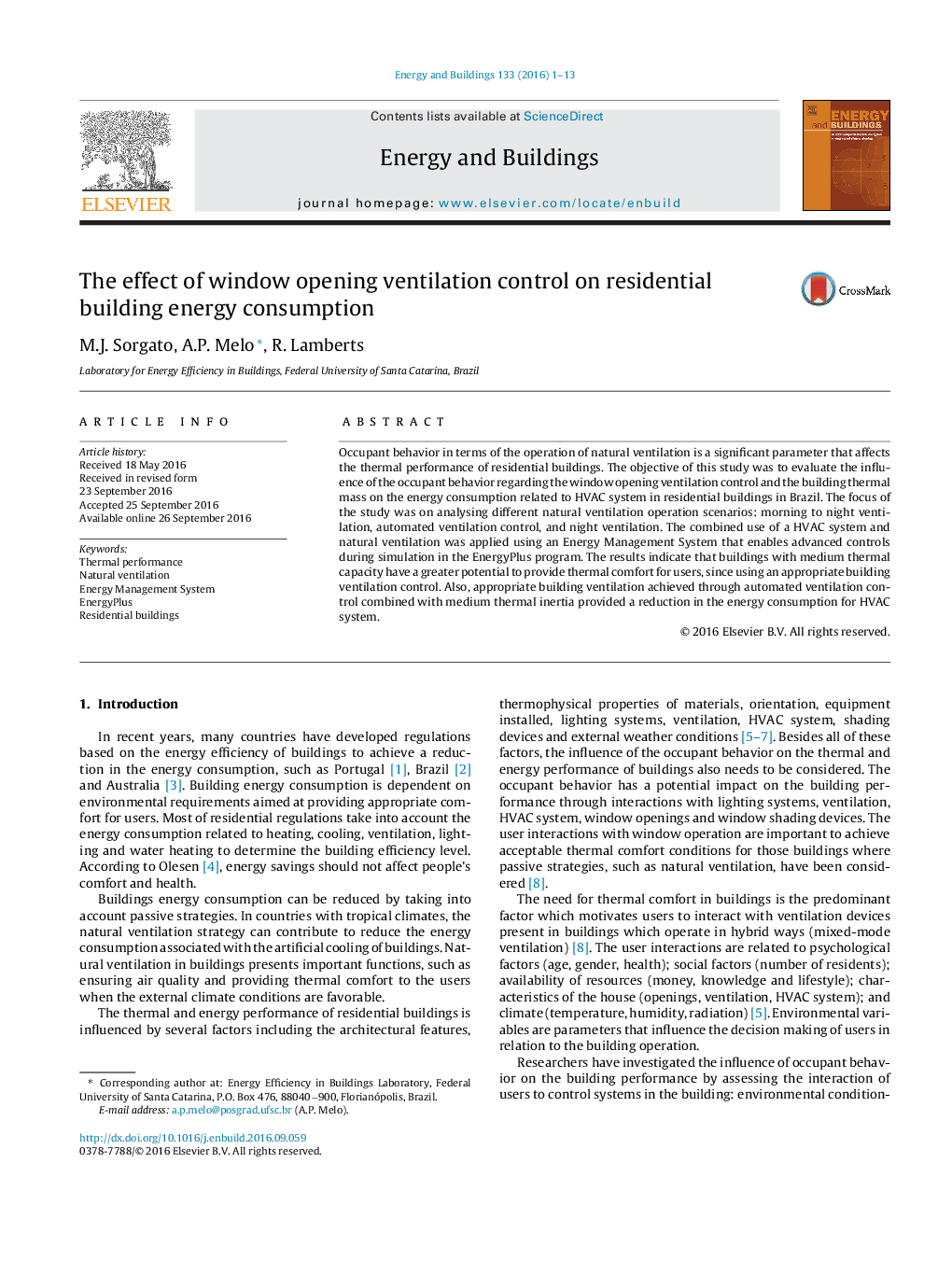| Article ID | Journal | Published Year | Pages | File Type |
|---|---|---|---|---|
| 4919487 | Energy and Buildings | 2016 | 13 Pages |
Abstract
Occupant behavior in terms of the operation of natural ventilation is a significant parameter that affects the thermal performance of residential buildings. The objective of this study was to evaluate the influence of the occupant behavior regarding the window opening ventilation control and the building thermal mass on the energy consumption related to HVAC system in residential buildings in Brazil. The focus of the study was on analysing different natural ventilation operation scenarios: morning to night ventilation, automated ventilation control, and night ventilation. The combined use of a HVAC system and natural ventilation was applied using an Energy Management System that enables advanced controls during simulation in the EnergyPlus program. The results indicate that buildings with medium thermal capacity have a greater potential to provide thermal comfort for users, since using an appropriate building ventilation control. Also, appropriate building ventilation achieved through automated ventilation control combined with medium thermal inertia provided a reduction in the energy consumption for HVAC system.
Keywords
Related Topics
Physical Sciences and Engineering
Energy
Renewable Energy, Sustainability and the Environment
Authors
M.J. Sorgato, A.P. Melo, R. Lamberts,
